Water and sewer utilities play a pivotal role in maintaining the health and well-being of communities across the United States. Ensuring access to clean water and efficient sewage management is not just a matter of convenience; it’s a fundamental necessity for public health and environmental protection. To achieve these goals, standard operating procedures (SOPs) are indispensable.
In the following blog, Capital Strategic Solution’s Senior Project Manager and experienced water and sewer director, John DeLuca, provides a look at the significance of developing and maintaining SOPs for water and sewer utilities and discusses regulatory best practices for operating utilities.
The Significance of Standard Operating Procedures
Why are SOPs important? Written SOPs help ensure every operator at your facility follows consistent and correct procedures, your utility follows industry best practices, and your plant meets regulatory requirements. During this time of COVID-19, SOPs are as important as ever. When staff turnover occurs or outside operators assist during an emergency, SOPs help new operators come up to speed quickly and help ensure nothing important is overlooked.
Consistency and Efficiency:
SOPs serve as a comprehensive guide to routine tasks and emergency procedures. By adhering to SOPs, utility personnel can ensure consistency in their operations. Consistency, in turn, leads to greater operational efficiency and reduced chances of errors or mishaps.
Regulatory Compliance:
Water and sewer utilities in the United States are subject to a multitude of federal, state, and local regulations. SOPs provide utilities with a structured way to meet these requirements. Having well-documented procedures not only helps in compliance but also demonstrates a commitment to environmental stewardship and public health.
Employee Training and Development:
SOPs are invaluable tools for training new employees and refreshing the knowledge of existing ones. They provide a clear roadmap for performing tasks correctly and safely. Additionally, they empower employees to take ownership of their roles and responsibilities, fostering a culture of accountability and professionalism.
Emergency Response:
In the event of a crisis, such as a water contamination incident or a sewer system failure, well-prepared SOPs can be a lifeline. They provide a step-by-step guide for responding to emergencies, reducing the time it takes to contain and mitigate the situation, thus minimizing potential damage and harm.
Regulatory Best Practices for Water and Sewer Utilities
To ensure the proper functioning of water and sewer utilities in the United States, adherence to regulatory best practices is imperative. Some key regulations and guidelines include:
Safe Drinking Water Act (SDWA):
The SDWA sets standards for drinking water quality and requires regular testing and reporting by water utilities. SOPs should include protocols for water quality testing, treatment processes, and emergency response in case of contamination.
Clean Water Act (CWA):
The CWA regulates the discharge of pollutants into U.S. waters. Sewer utilities must comply with CWA requirements by monitoring and maintaining wastewater treatment systems, which should be detailed in their SOPs.
Occupational Safety and Health Administration (OSHA):
Utilities must adhere to OSHA regulations to protect their employees. SOPs should incorporate safety procedures, such as proper handling of chemicals and equipment, as well as guidelines for personal protective equipment (PPE) usage.
Environmental Protection Agency (EPA) Guidelines:
The EPA provides comprehensive guidance and regulations for water and sewer utilities. Staying informed about and incorporating EPA guidelines into SOPs ensures compliance with federal standards.
The Need for Professional Assistance
Developing effective SOPs tailored to the unique needs of a water or sewer utility can be a complex and time-consuming process. To ensure that your utility operates efficiently and stays in compliance with all relevant regulations, consider seeking professional assistance. The team at Capital Strategic Solutions can provide the following benefits:
Expertise: Professionals have experience in developing SOPs for various utilities and can offer valuable insights and best practices.
Customization: They can create SOPs specifically tailored to your utility’s infrastructure, size, and operational requirements.
Compliance Assurance: Professionals keep abreast of changing regulations and ensure that your SOPs remain up-to-date and compliant.
Efficiency: Outsourcing SOP development frees up your internal resources to focus on core operations.
Personal service: Onsite employee training of SOP can ensure crews have a complete understanding of SOPs and the importance of proper documentation.
Standard operating procedures are the backbone of water and sewer utilities in the United States, ensuring the delivery of clean water and responsible sewage management. Adhering to regulatory best practices and considering professional assistance in developing and maintaining SOPs can help utilities operate efficiently, safely, and in compliance with the law. By prioritizing SOPs, utilities can safeguard public health, protect the environment, and foster a culture of professionalism and accountability within their organizations.
Capital Strategic Solutions’ mission is to provide our clients with the highest quality consultant services through evaluating and identifying opportunities, modifying internal structures, and accelerating processes. Our experienced and talented staff provides comprehensive administrative, technical and management support services that can assist your team in developing and executing cost-conscious programs and plans that maximize success and minimize risk to meet your community’s needs.
If you are interested in SOP services or other support, please contact us by emailing info@capital-strategic-solutions.com. We look forward to hearing from you.

